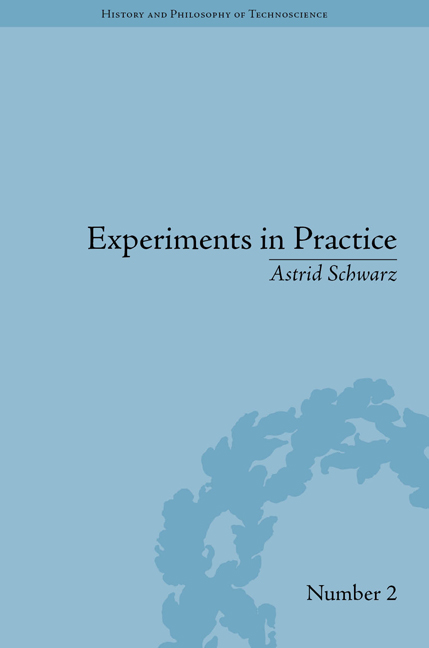Book contents
- Frontmatter
- CONTENTS
- List of Figures
- Introduction: Towards an Experimental Mode in Science, Society and Philosophy
- Part I Questioning the Scientific Method
- Part II Different Modes of Experimentation
- Part III Tirelessly Tinkering with Unruly Conditions
- Part IV Practising Experiments in a World of Environmental Concerns
- 10 Ecotechnology Complements Ecoscience: Probing a Framework
- 11 On the Pleasures of Ecotechnology
- 12 Conducting a Social Experiment: ‘Building with Nature’
- 13 Political Economy of Experiments
- Conclusion: Experiments in Practice – the Work of Experiments
- Notes
- Works Cited
- Index
10 - Ecotechnology Complements Ecoscience: Probing a Framework
from Part IV - Practising Experiments in a World of Environmental Concerns
- Frontmatter
- CONTENTS
- List of Figures
- Introduction: Towards an Experimental Mode in Science, Society and Philosophy
- Part I Questioning the Scientific Method
- Part II Different Modes of Experimentation
- Part III Tirelessly Tinkering with Unruly Conditions
- Part IV Practising Experiments in a World of Environmental Concerns
- 10 Ecotechnology Complements Ecoscience: Probing a Framework
- 11 On the Pleasures of Ecotechnology
- 12 Conducting a Social Experiment: ‘Building with Nature’
- 13 Political Economy of Experiments
- Conclusion: Experiments in Practice – the Work of Experiments
- Notes
- Works Cited
- Index
Summary
In many societies a growing consensus has arisen about the importance of ecological knowledge. More and more people are coming to understand that such knowledge can help to address some of the most pressing problems we face at both global and regional levels. It can do so not only by providing research and effective management options to deal with global warming, the depletion of natural resources and the deterioration of soils and water resources, but also by underpinning widespread calls for greener systems of production and consumption, in industrialized as well as newly industrializing countries. Debates about natural disasters, about the purity of nature and about the perceived crisis of the nature-culture relationship in general have one thing in common: they revolve around the important role of ecological knowledge in social processes and in negotiations over the kind of environment in which we wish to live. Accordingly, institutions engaged in environmental and ecological research are believed to have the necessary expertise to tackle environmental concerns and to develop solutions. In many countries, environmental research has become firmly established, whether in the context of implementing conservation programmes for water and land resources, establishing national parks and ecosystem services, designing environmentally friendly products, or promoting emerging technologies and green lifestyles. ‘Environmental research must turn its attention to developments in the field of innovation in order to be able to contribute towards precautionary policies’ has become a widespread credo.
- Type
- Chapter
- Information
- Experiments in Practice , pp. 141 - 156Publisher: Pickering & ChattoFirst published in: 2014

